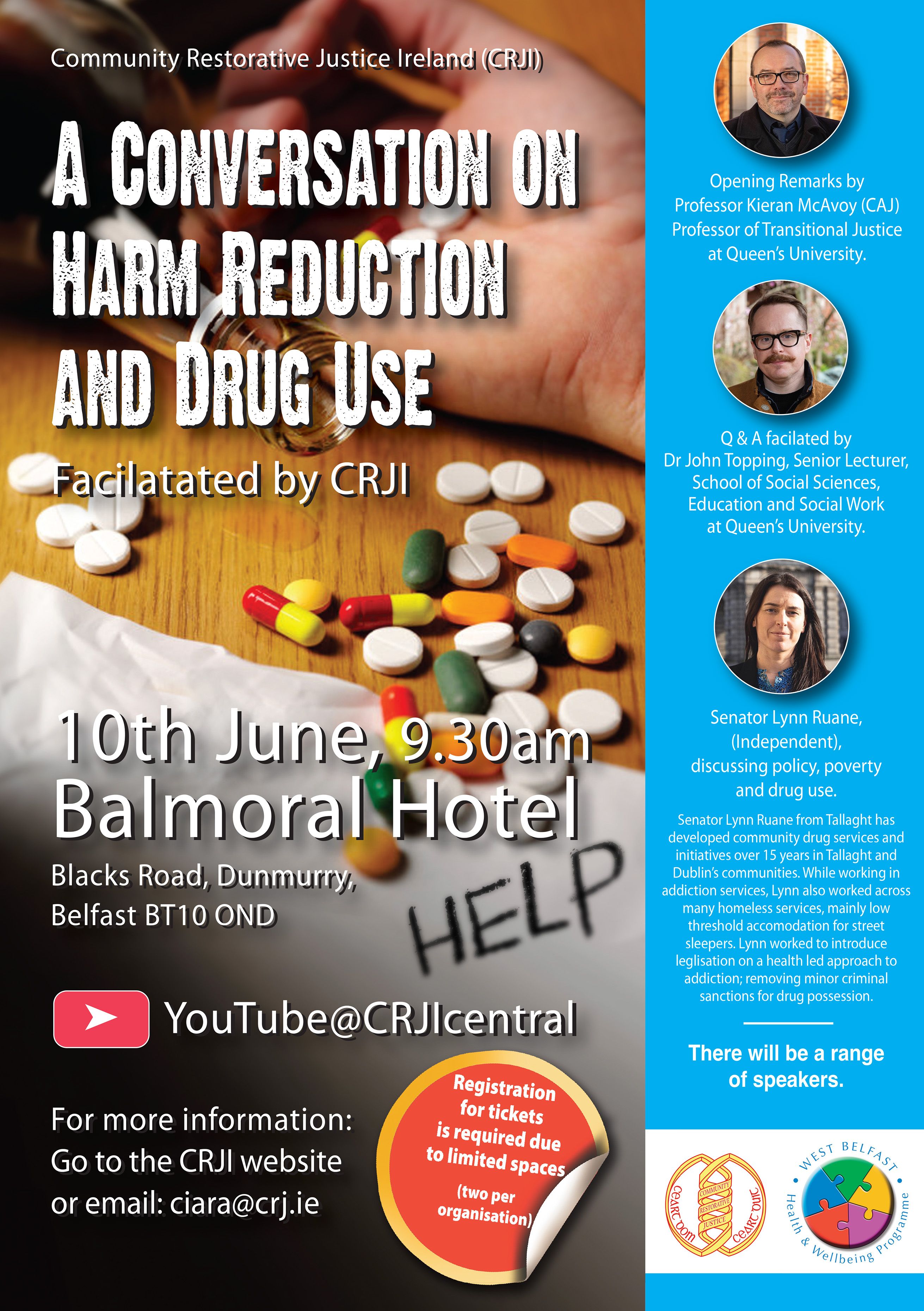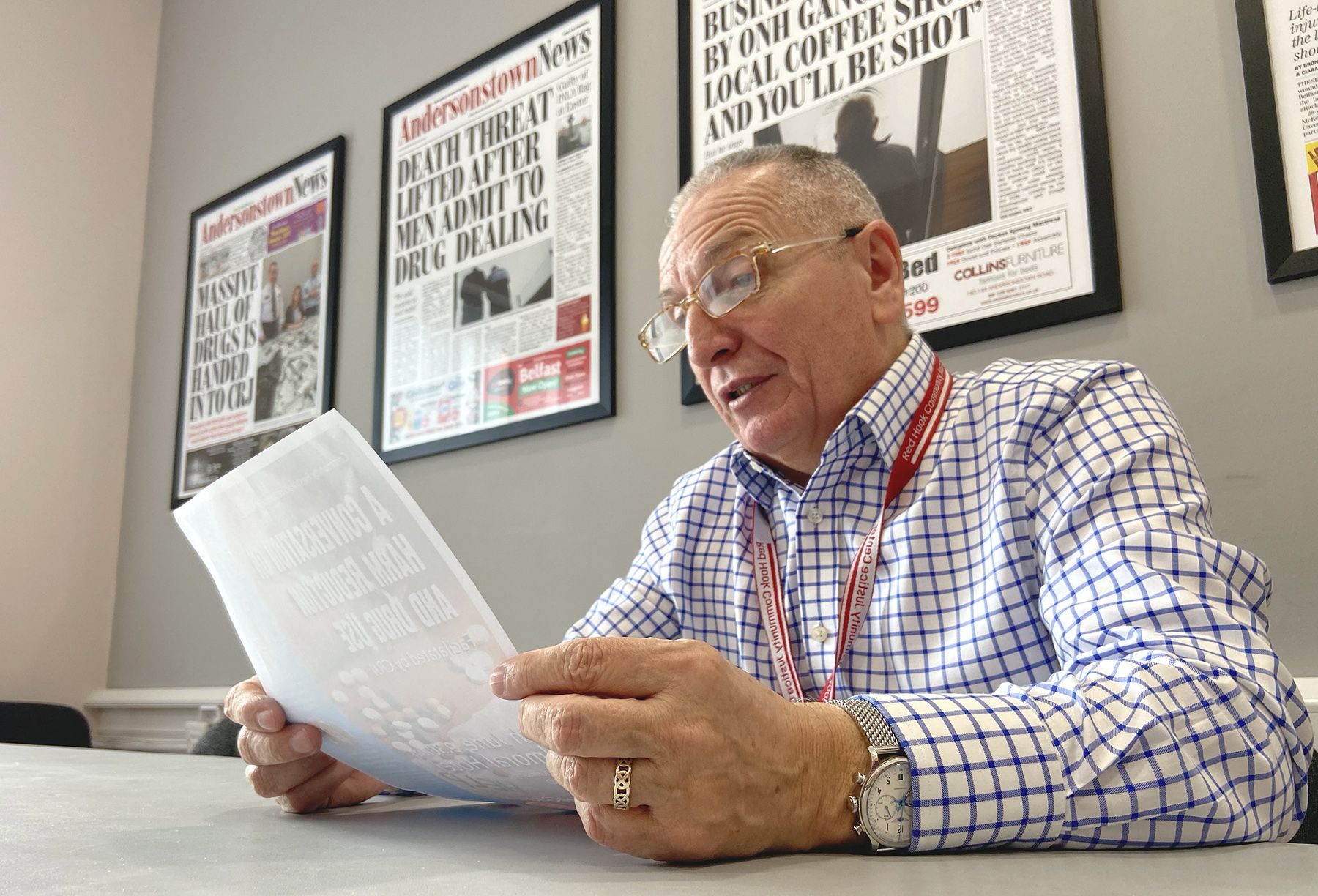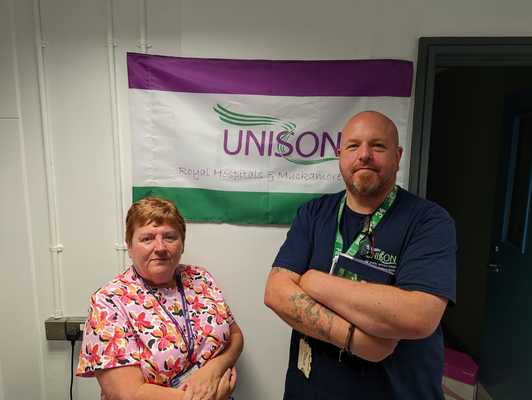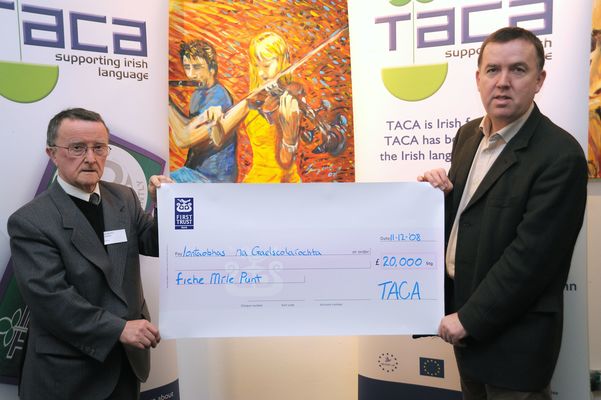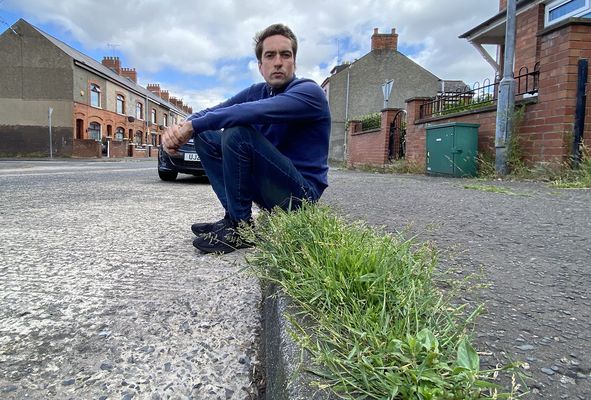Community Restorative Justice Ireland (CRJI) is to host a ground-breaking discussion on harm reduction and drug use next month.
The conversation will feature a range of expert guest speakers who will explore topics such as addiction, trauma, harm reduction and the decriminalisation of drugs.
It will take place on Friday, 10 June at 9.30pm in the Balmoral Hotel.
Speaking ahead of the event, Jim McCarthy, Deputy Director of CRJI, said: “With the amount of drug use going on within our areas and throughout the island I looked towards Dublin to see where they were. Obviously they had the heroin epidemic in the early 80s, so to me they were far more advanced in their conversations.
“Noeleen Reilly, who is a Councillor is Dublin, put me in touch with Senator Lynn Ruane and we discussed what this event would look like. It’s to start the conversation around harm reduction, decriminalisation, and if someone is going to use drugs how they are going to use it safely. It will also look at what the family does in that situation.”
While decriminalisation of drugs is an uncomfortable conversation for some, it has proven successful in countries like Portugal, where drugs consumption and deaths have reduced dramatically since being introduced in 2000.
Mr McCarthy said the decriminalisation also “takes the market away from the dealers”.
The wide-ranging discussion will offer a forum for the community to put forward its views on means of preventing harm through drug use.
To register for the event, or for more information, go to www.crjireland.org or email ciara@crj.ie.
Guest speakers include:
Professor Kieran McEvoy
Kieran McEvoy is a Professor of Law and Transitional Justice at the School of Law and a Senior Research Fellow at the Senator George J Mitchell Institute for Global Peace, Security and Justice, Queen's University Belfast. He is a Fellow of the British Academy, a Member of the Royal Irish Academy and a Fellow of the Academy of Social Sciences. He has conducted research in over a dozen conflicted or transitional countries contexts on topics including politically motivated prisoners, ex-combatants, victims, amnesties, truth recovery, human rights, restorative justice and the role of lawyers in conflict transition. Kieran has authored or co-authored four books, co-edited eight books or special issues, a four volume Handbook of Transitional Justice and over sixty journal articles and scholarly book chapters. His research has garnered a number of awards including the British Society of Criminology Book of the Year award and the Socio-legal Studies Association Article of the Year three times.
Dr John Topping
Dr John Topping is a Senior Lecturer at Queen’s University Belfast and a Senior Research Fellow at The Senator George J Mitchell Institute for Global Peace, Security and Justice. John's research focus over the past decade has related mainly to the issue of community policing, police reform and security governance.
John has a wide array of experience working with statutory policing institutions in Northern Ireland and beyond. Much of his work relates to critical examination of police practice, particularly around police stop and search and police powers. He also has experience of police training, along with advisory and consultancy roles which provide unique internal and external perspectives on policing more generally.
Dr Sharon Lambert
Dr Sharon Lambert joined the teaching staff in the School of Applied Psychology in 2014 following a number of years working within community-based settings that provided supports to socially excluded groups. Here research interests revolve primarily around the impact of trauma on development, its link with substance dependence and mental health and consequent considerations for service design and delivery. Sharon conducts research with community-based partners such as addiction, homelessness, criminal justice and education organisations. She is a member of the Psychological Society of Ireland, Silent Voices Advisory Group and was appointed to the statutory Parole Board by the Minister for Justice.
Dr Richard Healy
Dr Richard Healy completed his PhD in 2020 and worked for a number of years lecturing in Maynooth University in the schools of sociology and criminology. He then worked in Shelton Abbey prison, working with inmates just prior to release, attempting to re-integrate long serving offenders with education and housing needs.
Richard has been a member of the group Service Users Rights in Action since 2015, worked with long term homelessness and has published several reports informed by methadone use in the Republic of Ireland and the human rights of service users.
A former service user, Richard spent two decades using methadone services in both a clinical and out-patient capacity. Currently, Richard has three papers under peer review and is now employed in disability. Richard's other research interests are the use of sacred medicine and alternative modes of recovery.
Andy O'Hara
Andy O’Hara has been an active community worker for over 10 years. He has worked with those most marginalised, oppressed and excluded from power to create the conditions for those groups to play a lead role in increasing their participation in programmes, projects, policies, strategies and decision making spaces which recognises and addresses barriers, including structural barriers to meaningful participation at all levels which can enable us to formulate strategies that go beyond consultation and create a policy context for full participation that can lead to social change. Andy currently works in UISCE, which works for and with People Who Use Drugs to ensure their voices are heard in decision making spaces.
Andy currently represents UISCE on the National Oversight Committee (NOC). Session Title: Peer Partnership for Change.
Anna Quigley
Anna is Co-ordinator of Citywide Drugs Crisis Campaign, a network of community organisations involved in responding to the drugs problem in Ireland. Anna has over 30 years experience working in community development and drug-related issues and has passionate commitment to the engagement of the people who are most affected by public policies in the development and implementation of those policies.
Anna participates as a community representative on the national government structures that oversee Ireland’s National Drugs Strategy (NDS).
She is currently a members of the National Oversight Committee (NOC) for the NDS and is also Citywide’s representative on the EU Civil Society Forum on Drugs.
